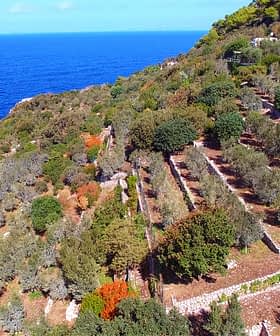An estimated 200 to 300 scientists, olive oil producers, vendors and officials will gather in the Uruguayan capital of Montevideo in November for the second annual Latin American Olive Oil Conference.
Participants at the two-day event, scheduled for November 8th and 9th, will discuss the challenges and opportunities facing the world’s largest olive oil-producing region outside the Mediterranean basin.
Adriana Gámbaro, one of the event’s organizers and the director of the Uruguayan University of the Republic’s Food Science and Technology department, told Olive Oil Times that the conference is an opportunity to create a public body of knowledge about olive growing and olive oil production specific to South American conditions.
See Also:Conferences Build Momentum for Pakistani Olive Oil Sector“The soil, rain and climate conditions are completely different from those of other olive-growing regions,” Gámbaro said. “One of the goals is to share all the research being done in the region.”
While many private companies conduct research across the region, they do not publish their findings. As a result, Gámbaro emphasized that the conference would play an important role in disseminating research conducted by universities and research institutes to the public.
Topics of discussion will include best agronomic practices, milling techniques and technology and olive oil economics.
For example, one panel will discuss how farmers in Uruguay and southern Brazil can deal with fungi such as Colletotrichum and other pests and diseases favored by humid summer conditions.
There will also be presentations about the use of enzymes in extra virgin olive oil production, an emerging area of interest in Australia and the Americas but a controversial topic in Europe, including a study from the University of the Republic.
“We are going to present the main results of our project at the conference,” Gámbaro said. “There will also be companies selling these enzymes with stands at the event.”
Another goal of the conference is to get people from across the continent together to share their experiences and learn from one another.
“Conferences are places where you are focused on one thing, and there is an interaction with the researchers,” Gámbaro said. “Common projects emerge.”
She believes the benefits of in-person interactions were missing from the first edition of the conference, which was held digitally in April 2021 after a one-year delay due to the Covid-19 pandemic.
These interactions will occur in casual conversation at the event and in the more formal environment of round-table discussions, including one about the potential for oleotourism across the region.
“It is an opportunity for producers to listen to these talks and say, ‘how interesting what they are doing; maybe I can do the same thing or something similar,’” Gámbaro said.
The backers of the Mendoza Protected Geographical Indication consortium will also discuss how they founded the region’s first geographical indicator for extra virgin olive oil.
“They will discuss what the process was like to get the PGI, which can also set the tone and teach other regions the steps they have to take to achieve the same,” Gámbaro said.
The event will also examine strategies to increase olive oil consumption in the region, form cooperatives, develop economies of scale, improve traceability and add value to milling byproducts.
“The final objective is for everyone to taste extra virgin olive oils from the region,” Gambaro said.
The conference begins the day after the International Olive Council’s Mario Solinas Awards for the Southern Hemisphere are announced in Montevideo.
Participants will be able to sample extra virgin olive oils from across the continent and see how the organoleptic profile of the same olive varieties differs from one region to the next.
Scientists and researchers have until September 15th to submit their studies and presentations. While there is no announced deadline for farmers, producers, vendors or the general public to sign up for the conference, the cost is $110 per person. Students can enroll for $60.









